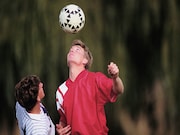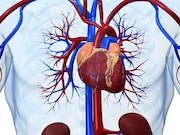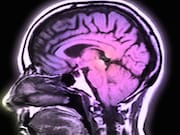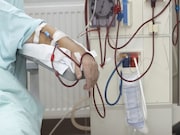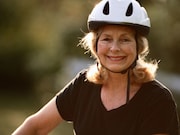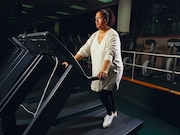Tag: Exercise: Misc.
Subsymptom Threshold Exercise Speeds Concussion Recovery
Aerobic exercise prescribed during first week after sport-related concussion speeds recovery in teens
Physical Activity Down Across Chronic Disease Subgroups
Mental health disorders tied to lowest moderate activity; those with CVD have lowest vigorous activity
Few Teens Meet Sleep, Exercise, Screen-Time Guidelines
Odds of meeting all three recommendations vary by age, race/ethnicity, BMI, marijuana use
High Physical Activity Levels Tied to Coronary Artery Calcification
But no increased mortality risk with high physical activity levels, CAC of ≥100 Agatston units
Aerobic Exercise Tied to Better Cognition at All Ages
Effect seen as young as 20 years, although the effect is greater with increasing age
Benefits, Barriers to Exercise Examined for Patients With ESKD
Patients undergoing dialysis would like to be able to exercise to improve energy, strength
Body Size, Physical Activity Could Impact Odds of Reaching 90
In women, height, BMI at age 68 to 70, and change in BMI impact odds of reaching longevity
Doctors Should Encourage Exercise in Patients With Diabetes, CV Disease
Recommendations suggest doctors prescribe individualized exercise training for these patients
Objectively Assessed Exercise Protective Against Depression
Objectively assessed, but not self-reported, physical activity protects against major depressive disorder
High Levels of Activity, Motor Ability Linked to Better Cognition
Findings seen in older adults; independent correlations remained for those with Alzheimer disease


